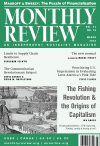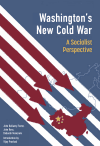
The silly war
A new poem by Marge Piercy. | more…

A new poem by Marge Piercy. | more…

March’s “Notes from the Editors” revisits the Non-Aligned Movement and its growing role in the New Cold War. The rise of Russia, China, BRICS, and other nonaligned countries hearlds the emergence of a new, multipolar world, counteracting the global hegemony of the United States. | more…

Steve Ellner analyzes the debate surrounding the wave of elections of left-leaning political leaders in Latin America, known as the Pink Tide. Critics of these governments, Ellner suggests, emphasize their shortcomings at the expense of recognizing their anti-imperial position. | more…

A new poem by Marge Piercy. | more…

Martin Hart-Landsberg revisits the history of the industrial re-organization of the U.S. economy during the Second World War. What can we learn from our past about the systemic changes necessary to face our future? | more…

A new poem by Marge Piercy. | more…

A new poem by Marge Piercy. | more…

In Endless Holocausts author David Michael Smith demolishes the myth of exceptionalism by demonstrating that manifold forms of mass death, far from being unfortunate exceptions to an otherwise benign historical record, have been indispensable in the rise of the wealthiest and most powerful imperium in the history of the world. At the same time, Smith points to an extraordinary history of resistance by Indigenous peoples, people of African descent, people in other nations brutalized by U.S. imperialism, workers, and democratic-minded people around the world determined to fight for common dignity and the sake of the greater good. | more…

In this prescient chapter from 1982, author and activist Anne Braden draws a direct line from the anti-Communist witch hunts of the McCarthy Era to state repression of mass movements from the civil rights era to the rapid expansion of the racist police state that continues to this day. This chapter is reprinted from Anne Braden Speaks (Monthly Review Press, 2022). | more…

This month’s “Notes from the Editors” takes on the Biden Administration’s recently released National Security Strategy, a bellicose document that rattles sabers towards the supposed autocracies of Russia and China while reviving the age-old lie of the United States as protector of democracy. | more…

A visit to a Venezuelan commune reveals a fascinating look into the creative ways communards forge ways of life in urban centers, and how these projects intersect with the much-needed transformations required for a grassroots and socially integrated ecology. | more…

As the American people delude themselves once more into thinking of the United States as a liberating force for peace in the world, Waging a New Cold War invites us, instead, to think for ourselves. Behind the scenes the plans to wage war have been laid—either by proxy, as in Ukraine, or directly, against the U.S.’s old twentieth-century foes. Waging a New Cold War: A Socialist Perspective makes a strong case that, as the official story is laid out by government propagandists, and as the mainstream media provides cover, the aim of this latest set of American military escapades remains the same as ever: Maintenance of U.S hegemony in the global financial system. Foregrounded with an introduction by Vijay Prashad, this cogent collaboration puts forth three essays that illustrate clearly that, while the Cold War against the Soviet Union ended, the “cold war” against the “enemies” of the United States did not. Furthermore, its authors lay out evidence that the U.S. establishment has been willing to risk nuclear winter—in other words, mutual annihilation—to hold onto economic primacy. And they show that, while Russia and China can each be criticized, justifiably, for their violations of human life and dignity, neither, on its own, threatens the eruption of a Third World War and the end of the human race as we know it. Just in time, we have in our hands an intelligent text that strengthens our struggle against the cynical machinations of the American military behemoth and its propaganda machine. | more…
Notifications